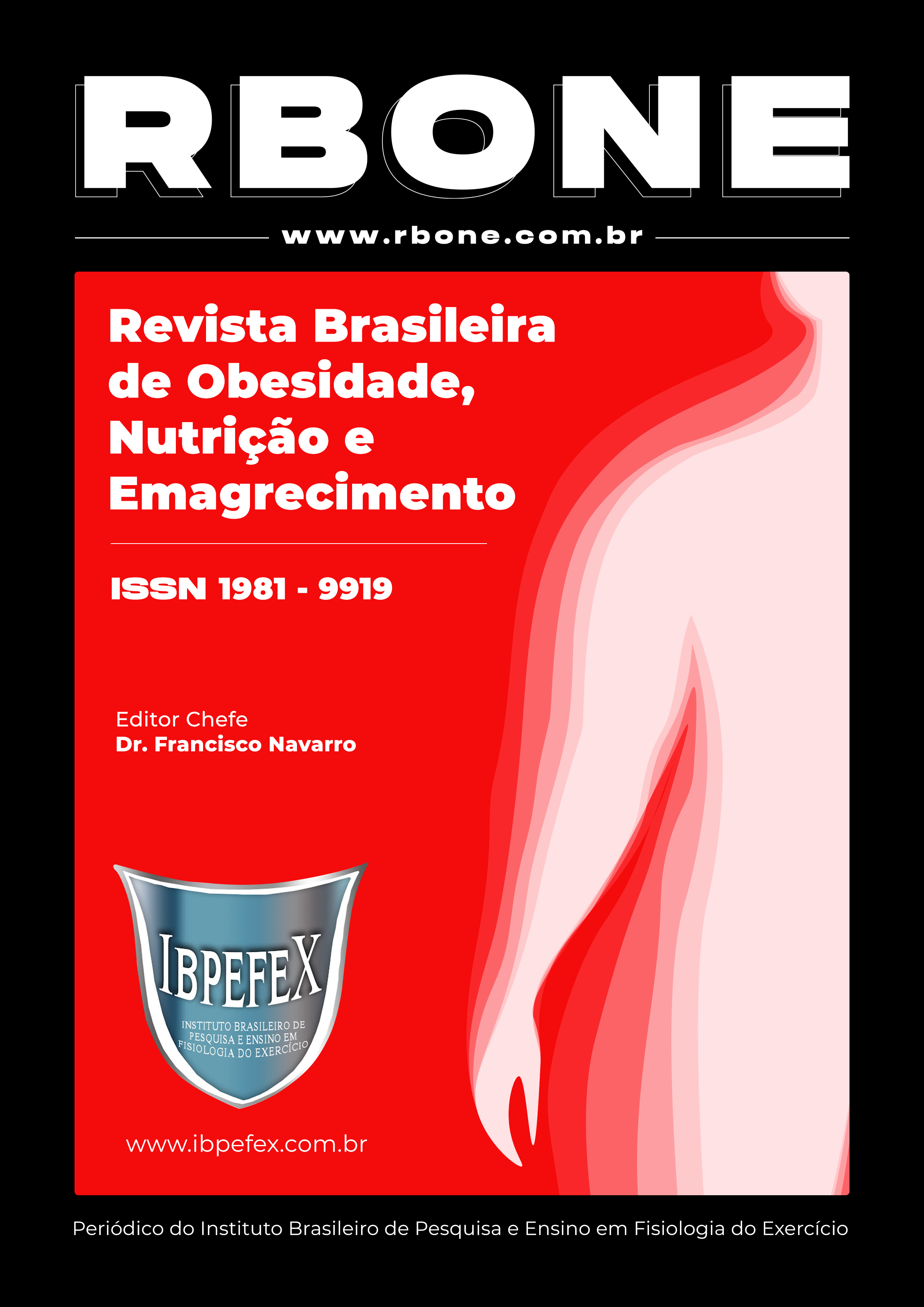The use of ludicity to demitify the physiological behavior of hunger among young people
Abstract
Encouraging young people to know their own bodies from a cellular and physiological perspective can lead to the adoption of daily practices to prevent diabetes and obesity. In addition, to facilitate the overcoming of social issues that lead to stigmatization and prejudice. It is already known that the state of Mato Grosso do Sul, especially its Capital, Campo Grande, has high rates of these chronic diseases and the importance of ludic education for the learning process. Therefore the objective of this work was to develop a spiral puzzle with concepts related to ghrelin, insulin, leptin and energy balance, and verify whether this proposal promotes understanding of the physiological mechanisms of hunger and satiety, demystifying the stereotypes present in the school environment associated with overweight. Fourteen students from the 1st year of high school at the state school Prof. Emygdio Campos Widal. The participants were submitted to a questionnaire before and after the didactic intervention, and the data were analyzed regarding the evolution of the acquired knowledge. The answers, after the pedagogical practice, demonstrated that the students learned new biological concepts. It is concluded that ludic and interactive actions carried out in the school environment can contribute to the learning process about the physiological determinants of hunger and satiety, and stimulate the reduction of intolerance materialized in the form of bullying among young people, since it promotes individual and collective awareness of demystify physical stereotypes associated with food consumption.
References
-Apolinário, A. C.; Da, S. R.; Moço, C. M. N. O bullying no contexto da obesidade na adolescência: intervenções da terapia cognitivo comportamental. Revista Ibero-Americana de Humanidades, Ciências e Educação. Vol. 8. Num. 8. 2022. p. 514-531. DOI: 10.51891/rease.v8i8.6620.
-Costa, M.; Souza, M.A; Oliveira, V.M. Obesity in children and bullying: the teachers´ viewpoint. Educação e Pesquisa. Vol. 38. Num. 03. 2012. p. 653-665.
-Dâmaso, AR.; Sanches, PL. Tratado de obesidade: 2ª edição. Rio de Janeiro. Guanabara Koogan. 2015. p. 1216-41
-Faccioni, L. C.; Soler, R. R. Abordagem lúdica sobre os aspectos celulares do diabetes e da obesidade para alunos do ensino médio. Revista Brasileira de Extensão Universitária. Vol. 9. 2018. p. 27.
-Guyton, A. C.; Hall, J. E. Tratado de fisiologia médica. 11ª edição. Rio de Janeiro. Elsevier. 2006.
-Guyton, A.C; Hall, J.E. Tratado de Fisiologia Médica: 12ª edição. Rio de Janeiro. Elsevier. 2011.
-Iser, B. P.; e colaboradores. Prevalência de diabetes autorreferido no Brasil: resultados da Pesquisa Nacional de Saúde 2013. Epidemiol. Serv. Saúde. Brasília. Vol. 24. Num. 2. 2015. p. 305-314.
-Iser, B. P. M.; e colaboradores. Prevalência de diabetes autorreferido no Brasil: resultados da Pesquisa Nacional de Saúde 2013. Epidemiol. Serv. Saúde. Brasília. Vol. 24. Num. 2. 2015. p. 305-314.
-Junqueira, L.C.; Carneiro, J. Biologia Celular e Molecular. 11ª edição. Rio de Janeiro. Guanabara Koogan. 2013.
-Kubota, L. C. Discriminação contra os estudantes obesos e os muito magros nas escolas brasileiras. Instituto de Pesquisa Econômica Aplicada (IPEA). 2011. https://repositorio.ipea.gov.br/handle/11058/2643.
-Linhares, S.; Gewandsznajder, F. Biologia Hoje. 2ª edição. São Paulo. Ática. 2012.
-Lorenzetto, L. A. A coragem de brincar. Motriz. Vol. 7. Num.1. 2001. p. 53-56.
-Macedo, L.; Passos, N.C. Os Jogos e o Lúdico na Aprendizagem Escolar. Porto Alegre. Artmed. 2005.
-Macedo, L.; Petty, A. L. S.; Passos, N.C. Aprender com jogos e situações-problema. Porto Alegre. Artmed. 2000. Vol. 1.
-Masharani, U.; German, M S. Endocrinologia Básica e Clínica de Greenspan. 9ª edição. Porto Alegre. AMGH. 2013.
-Pereira, FL.; Maciel, RM. O Bullying Contra Crianças Obesas em Ambiente Escolar e suas Consequências. Revista Científica Multidisciplinar Núcleo do Conhecimento. Ano 01. Vol. 10. 2016. p. 249-260.
-Ruiz, J.; Schwartz, G.M. Games and arts as strategies for environmental education in school contexto. Revista Educação Física/UEM. Vol. 13. Num. 2. 2002. p. 127-132.
-Swinburn, B. A.; e colaboradores. The global obesity pandemic: shaped by global drivers and local environments. The Lancet. 2011.
-Tortora, G.J.; B, Derrickson. Princípios de anatomia e fisiologia. 12ª edição. Rio de Janeiro. Guanabara Koogan. 2010.
-Tripp, D. Pesquisa-ação: uma introdução metodológica. Educação e pesquisa. São Paulo. Vol. 31. Num. 3. 2005. p. 443-466.
Copyright (c) 2024 Carlos Alberto Bento Junior, Raíssa de Andrade Águas, Mariana Barreira Bertoluci, Matheus Maresciallo Martins Zandonadi, Ana Laura Abbud Chierice, Ludimila Canuto Faccioni

This work is licensed under a Creative Commons Attribution-NonCommercial 4.0 International License.
Authors who publish in this journal agree to the following terms:
- Authors retain the copyright and grant the journal the right of first publication, with work simultaneously licensed under the Creative Commons Attribution License BY-NC which allows the sharing of the work with acknowledgment of the authorship of the work and initial publication in this journal.
- Authors are authorized to enter into additional contracts separately for non-exclusive distribution of the version of the work published in this journal (eg, publishing in institutional repository or book chapter), with acknowledgment of authorship and initial publication in this journal.
- Authors are allowed and encouraged to post and distribute their work online (eg, in institutional repositories or on their personal page) at any point before or during the editorial process, as this can bring about productive change as well as increase impact and impact. citation of published work (See The Effect of Free Access).






